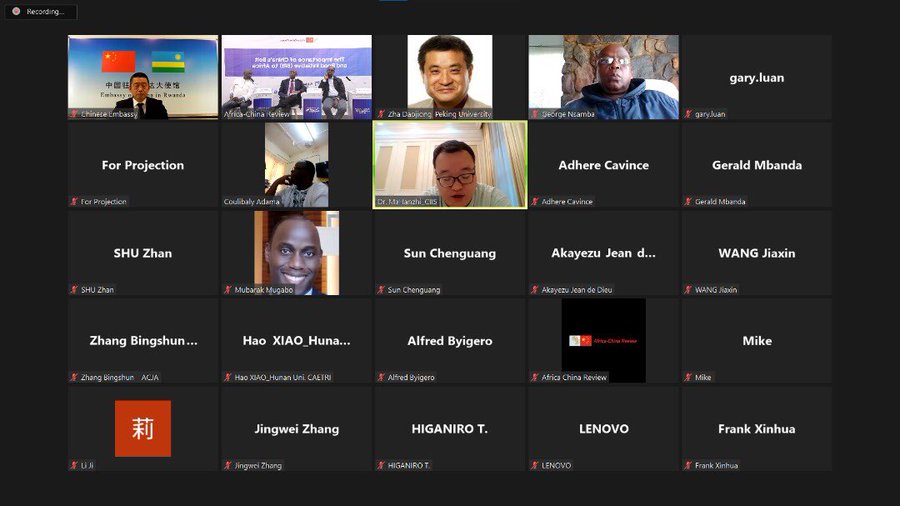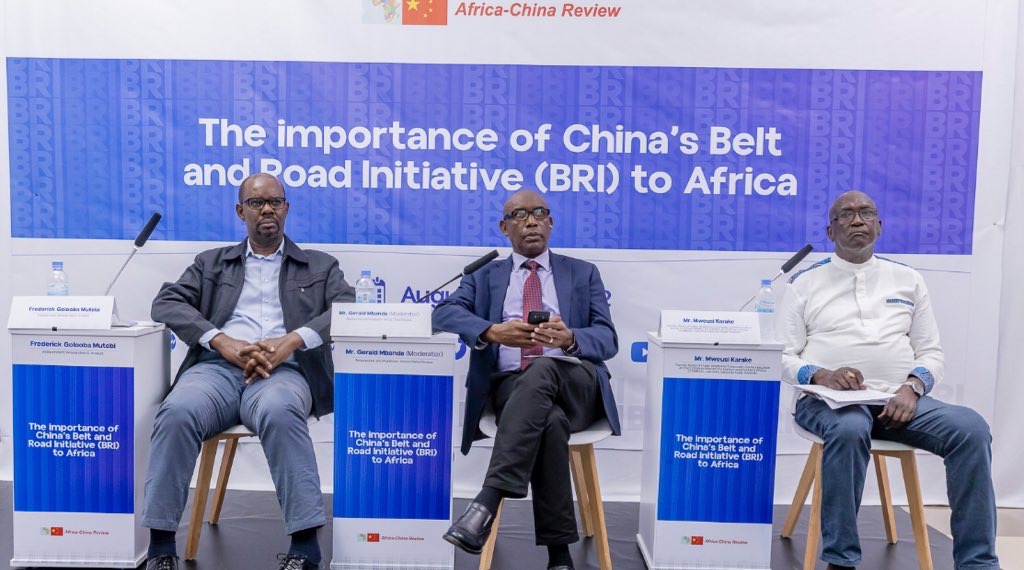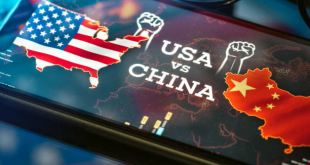Published: August 25,2022
By Staff writer

The African continent has improved infrastructure development, through cooperation with China under the Belt and Road Initiative (BRI), African experts said, in a one day virtual meeting that brought together African, Chinese and Pakistan experts. The virtual meeting was the first of its kind organized by Africa-China Review publication which focuses mainly on cooperation between the African continent and China.Hon. Mohamed Libaahe, the Minister of Livestock and Animal Husbandry, Puntland State of Somalia, who was the guest of honor commended the win-win cooperation between China and Africa and called for deepening the cooperation in various areas.
Chinese ambassador to Rwanda, H.E Wang Xuekun, noted that, initiatives including the BRI, GDI, FOCAC, as well as the 2021 Initiative on Partnership for Africa’s Development, provide effective platforms to deepen the bilateral relations and advance the beneficial cooperation.
“Since the launch of the Belt and Road Initiative (BRI), China has been working with countries involved to deepen mutually beneficial cooperation in line with the principle of extensive consultation, joint contribution and shared benefits. As of July this year, more than 140 countries have signed Belt and Road cooperation documents with China. A large number of practical cooperation projects have been launched and benefited the local economy and people’s livelihood”, ambassador Wang said.
Africa is one of the most active directions for participating in BRI cooperation. 52 African countries and the AU Commission have signed cooperation documents with China. Our efforts have yielded tangible and substantial progress. Since 2009, China has become Africa’s largest trading partner for 13 consecutive years. In 2021, the bilateral trade volume between China and Africa reached US$ 254.3 billion. Chinese enterprises have built or upgraded for Africa more than 10,000 km of railways, nearly 100,000 km of highways, nearly 1,000 bridges, 100 ports and more than 80 large-scale power facilities. Chinese firms have also helped countries in Africa build more than 130 medical facilities, more than 170 schools, and trained more than 160,000 professionals in various fields. We have made good progress in implementing the BRI. The people in Africa are getting real benefits, ambassador Wang further noted.
Professor Zha Daojjiong at Peking University, school of international studies and institte of South-South Cooperation and Development said that, it is worth reiterating that the Chinese conception of BRI goes way beyond hard infrastructure to include other areas of connectivity. Prof. Zha also noted that China emphasizes taking on the challenge of turning low income economies of potential consumers of products to higher income economies. “BRI or GDI, policy makers in China does have their own holistic philosophical conceptualization. The core is to appreciate the value of an interdependent world, hence the notion of China’s vision of building a community of shared future” Prof. Zha said. Win-win cooperation, multilateralism, inter-civilizational dialogue and sovereign equality are key principles of China cooperation with the rest of the world, according to Prof. Zha.

Mr. Golooba Mutebi, an independent researcher said that BRI has come at the right time when the African continent is in dire need of infrastructure development. Mr. Mweusi Karake, former official at the Common Market for Eastern and Southern Africa (COMESA) observed that Africa has gained more through cooperation with China’s BRI than decades of colonization that only served to exploit the continent’s resources. “It is easy for Africans to relate to China because if China has made it, Africa can make it. The fact that the Chinese were able to build their country from scratch and get where it is today, should inspire African countries” Mweusi further said. Mr. Mubarak Mugabo a journalist with interest in Sino-Africa relations observed that it is the responsibility of Africans to take care of BRI projects effectively, “because their impact has positively changed our lives.”
The African Development Bank estimates that the continent’s infrastructure financing needs will be as much as $170 billion a year by 2025, with an estimated gap of around $100 billion a year. This shows the critical need for African continent to fill the gap in order to attain the required level of infrastructure development to facilitate both internal and external trade. Economic experts believe that the Belt and Road Initiative projects in Africa are truly in line with Africa’s Agenda 2063.
Through BRI projects, improvement of roads, schools, hospitals has been realized as well as the rampant unemployment problem of the youth, said Mr. George Nsamba a risk management practitioner with keen interest in BRI, based in South Africa. He further noted that agriculture projects have also improved production which has boosted food security, while factories have enhanced manufacturing of goods in Africa to reduce reliance on expensive imports.
Dr. Adhere Cavince a scholar of international relations with a focus on China-Africa relations based in Kenya said that the BRI delivered jobs and opened avenues for increased digital cooperation; therefore, the BRI has the potential to move the entire continent of Africa forward. “ The Kenyan government worked closely with China, which yielded great results like the Mombasa–Nairobi Standard gauge railway, which played an important role in boosting Kenya’s economic growth”, Dr. Cavince said.
The Executive Director of Pakistan-China institute Mr. Mustafa Hyder Sayed, shared experience of improved connectivity and business enhancement of BRI projects especially under the Pakistan-China Economic Corridor, and Africa countries can learn a lot from this success, Mr. Mustafa noted. Dr. Ma Hanzhi an assistant researcher at China Institute of International Studies (CISS) commended the shared benefits with the rest of the world under BRI projects.
Participants dispelled the “debt trap diplomacy” claims by western countries accuse China of chocking African countries with heavy debts. The participants called the claims western propaganda aimed at tarnishing the image of China. Instead, they argued, that Africa is more indebted to western countries that China. Mr. Gerald Mbanda a researcher and publisher at Africa China Review noted that, “one day ago, Chinese Foreign Minister, Wang Yi announced that China will forgive 23 interest-free loans to 17 African countries and will also provide food assistance to the struggling nations”. This is one example how China helps African countries out of debts, rather than being the cause, Mr. Mbanda noted.
For comments or opinion write to us on info@africachinareview.com. You can also follow us on twitter @africachinarev
 Africa -China Review Africa -China Cooperation and Transformation
Africa -China Review Africa -China Cooperation and Transformation
